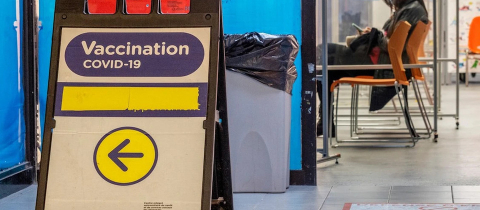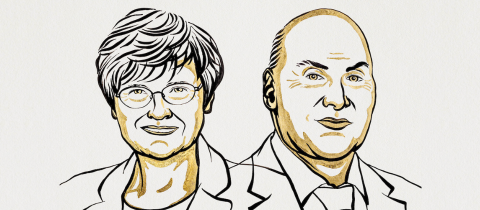It started with a laboratory study on African green monkey kidney cells. While the dose used was much higher than what doctors would prescribe, the results were promising. Ivermectin could stop the new coronavirus from making copies of itself.
This drug, ivermectin, has acquired political overtones in some circles. It is a quasi-religious shibboleth, a belief that identifies the tribe you belong to. But underneath all of this modern baggage, ivermectin is simply a very useful drug. As a lotion, it can treat head lice. In a cream, it treats rosacea. When taken by mouth, it treats infections caused by worms, like river blindness and strongyloidiasis. Its discovery from soil bacteria and its application in medicine resulted in a Nobel Prize win, and it is listed as an essential medicine by the World Health Organization. And, yes, it comes in a horse paste for the treatment of livestock.
On the heels of ivermectin’s one-time win over the coronavirus in the laboratory, some critical care doctors started to administer it to hospitalized patients who were fighting against complications from COVID-19. And the drug, according to those stunned doctors, seemed to be working. Study results trickled in backing up their real-life experiences. Ivermectin was picking up speed. It was starting to look like the future.
But a year and a half later, this train, still ploughing ahead, is now riddled with holes. Scientists and physicians have pointed out that it is falling apart, that it should stop for repair or even be retired. But the train keeps on rattling along. Why? Why won’t the ivermectin train stop?
Trust facilitates fraud
Those holes were not spotted by your typical train inspectors. Rather, they were detected by volunteer scientists spending unpaid time to scrutinize data sets and pick up what would politely be called “inconsistencies.” Patients who had died before the trial to test ivermectin began. Hospitals that were claimed to have participated but which stated they had no record of the study. Data that looked to have been copied and pasted multiple times from one patient to the next. The smell of fraud is hard to ignore when you have the nose for it.
These data detectives—in this case Jack Lawrence, Gideon Meyerowitz-Katz, Nick Brown, Kyle Sheldrick, and James Heathers—have learned a hard lesson: the apparatus of scientific research is built on trust, which hinders the detection of fraud. As Richard Smith, a former editor of The British Medical Journal, wrote in a sobering opinion piece last July, “it may be time to move from assuming that research has been honestly conducted and reported to assuming it to be untrustworthy until there is some evidence to the contrary.”
In a recent Atlantic piece, Heathers, one of the data detectives, stated that, “in our opinion, a bare minimum of five ivermectin papers are either misconceived, inaccurate, or otherwise based on studies that cannot exist as described.” That’s at least five out of 30 randomized or influential ivermectin studies the group has looked at. One of them, a paper coming out of Egypt, reported such a large effect that when it was withdrawn due to “ethical concerns,” a meta-analysis of the ivermectin literature that had once concluded the drug saved lives, once re-analyzed, showed no significant survival benefit. The Egyptian study, which appears fraudulent, had swayed the entire body of evidence one way. With further studies removed due to a high risk of bias or concerns as to how they were reported, the benefit grows in insignificance. “At a certain point,” Meyerowitz-Katz wrote in a blog post, “you have to accept that the evidence-base is so corrupted that the message that has been pushed for months by eager promoters of the drug is very unlikely to be true.”
The loudest of these eager promoters may be the Front Line COVID-19 Critical Care Alliance or FLCCC, with Dr. Pierre Kory serving as their president and best-known spokesperson. Their website, to this day, is pro-ivermectin. The first sentence of their ivermectin section is that “these pages contain the scientific rationale that justifies the use of ivermectin in COVID-19.” Their founding members are not quacks. They are not naturopaths who believe “chemicals” are bad and Mother Nature can heal all things. They are not unqualified men with a pseudoscientific understanding of health, peddling supplements. They are critical care doctors. Kory himself has treated many patients with COVID-19.
So how do these educated physicians, with real-life experience of the disease, who take COVID-19 seriously, not change their mind as the ivermectin body of evidence collapses? Why is the train they operate still moving forward?
The idea overcomes the process
What follows are speculations. It is impossible to know for sure what goes on inside someone else’s head. Asking them to explain what their blind spots are is oxymoronic. I have no idea what my own blind spots are, by definition. But paying attention to what the ivermectin promoters say and knowing a bit about how our brain can deceive us can help us understand what may be happening and how to avoid these pitfalls for ourselves.
In a June 2021 appearance on Joe Rogan’s massively popular podcast, Pierre Kory said of ivermectin for COVID-19 that he had seen it work. But just because something happens after an intervention does not automatically imply that it was caused by it (in Latin, this fallacy is known as post hoc ergo propter hoc). Obviously, if a drug is known to bring patients back from the brink and a doctor’s patient gets better after receiving it, the doctor and the patient are both justified in thinking that the drug did its job. But in the absence of convincing data (or in the presence of a crumbling body of studies), casting ivermectin as the cause of the improvement is premature. Once that link is made, however, the accumulation of anecdotes, personally witnessed, can become very convincing. It’s a fever that can overcome the intellect.
Another interesting piece of this puzzle is when Kory brings up steroids. In May 2020, he testified in front of the U.S. Senate to recommend, in part, that doctors should use corticosteroids to control the inflammation in COVID-19 and to denounce that health societies like the WHO and the CDC were recommending against it at the time. As he later told Rogan, when a trial showed that steroids were life-saving, “we were validated.” The way Kory tells the story, the trials and errors of his fellow physicians in the trenches led them to the correct answer before public health agencies caught on. If they were right about steroids, they must also be right about ivermectin.
But history holds a long record of scientists who were right about one thing and utterly wrong about another, the most extreme examples being those afflicted by Nobel disease, whose discoveries were worthy of the highest honour but whose denial of AIDS or promotion of megadoses of vitamins has certainly puzzled many people. Truth should not be decided by eminence but rather by evidence. The hypotheses of experts are useful but they must be properly put to the test.
The sunk cost fallacy can also kick in. When you spend over a year promoting a treatment protocol, forming a group to advocate for it, doing multiple interviews and testifying twice in front of the U.S. Senate, calling ivermectin “a miracle drug against COVID-19” and saying that it “was slaying the Delta variant,” you have invested a lot of your identity in defending this drug. You identify with an idea—that ivermectin absolutely works against COVID-19—and not with a process—the scientific quest to evaluate if ivermectin works against COVID-19. Publicly backtracking on this notion when the results of the process refute your idea requires a very large dose of humility. As Kory tweeted, he has “blown up” his career “because history demanded it.” The cost he has sunk into this is tremendous.
It’s easier to bend reality around this core idea in order to explain why so few doctors and scientists are witnessing this miracle. People who get it right during the pandemic “don’t have masters to answer to,” Kory said. There’s no money to be made prescribing ivermectin for COVID-19 (not true, as The Intercept showed). There is this “obsession” with large randomized controlled trials, which are “not appropriate for a pandemic” (they absolutely are). Scientists who say the evidence for ivermectin is unclear may be doing so “for another WHO paycheck in the future.” Public health agencies, social media companies, and traditional media outlets try to censor the discussion or promote “disinformation,” saying that ivermectin doesn’t work.
And when Kory himself got COVID-19 despite taking ivermectin weekly and insisting to the Homeland Security Committee that “if you take it, you will not get sick,” well, maybe the dose should be doubled. Especially because of the more transmissible variants, like Delta. Which ivermectin apparently “slays.”
Doing the sniff test with blinders on
Some skepticism of large organizations and corporations is justified. Large public health bodies can be slow in evolving their recommendations. Companies, by design, favour profits. That does not mean that these entities can never be trusted. And it certainly shouldn’t justify the belief that ivermectin works for COVID-19.
We see a similar way of thinking among the dogmatists of alternative healing practices. Science has been corrupted by financial incentives, they will say. The pharmaceutical industrial complex is poisoning us, which is why we can cherry-pick weak studies of our favourite, all-natural remedy—which has been around for far longer than Big Pharma’s latest wonder drug—to prove that it is both safe and effective. This is just bad logic.
Dr. Pierre Kory repeatedly refers to ivermectin as a wonder drug—a “gift to humanity,” he quotes his FLCCC colleague as saying—that guarantees you won’t get sick. But is this even plausible? When we know that a small minority of molecules make it from basic research to the clinic for a specific application, and when we know that our history of developing successful antivirals is actually very disappointing (the notable exception being HIV drugs), it’s hard to believe that a repurposed antiparasitic drug would turn out to be almost perfectly effective at both treating COVID-19 and protecting you from getting it in the first place. And one of the studies Kory mentioned on Joe Rogan’s podcast—saying ivermectin led to “100% protection” in the participants—was published in a journal that only has one issue. The manuscript was received and a mere seven days later, it had apparently been peer reviewed and was published. As for this miraculous efficacy, Nick Brown, one of the data detectives, told Insider that “this would be an absolutely unheard-of level of efficacy.” This whole study doesn’t even pass the sniff test. But if you have blinders on, you simply can’t see these clues.
Ivermectin may offer a slight benefit or a slight harm to people with COVID-19, we still do not know for sure, but it is clearly not the saviour the FLCCC and other proponents of the drug want us to believe. Their obsession with ivermectin is not data-driven.
So the train keeps on moving. At the front are the people like Dr. Pierre Kory and the FLCCC, and their message trickles down to influencers, whose message makes its way to the back of the train, leading people to feel a false sense of protection against the disease, with some experiencing toxic effects from livestock-grade dewormer.
The people conducting the ivermectin train have sabotaged the brakes. The train will keep on chugging along, even as it falls apart.
Take-home message:
-The idea that the antiparasitic drug ivermectin could be useful to treat or to prevent COVID-19 started with a laboratory study done in monkey cells, in which very high doses of the drug prevented the coronavirus from making copies of itself
-Many studies of ivermectin against COVID-19 in humans show signs of fraud or are at a high risk of having biased results
-Promoters of ivermectin may not change their mind in the face of these revelations because of personal anecdotes, the sunk cost fallacy, and a distrust of the pharmaceutical industry







